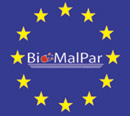
|
ICORN: Iterative Correction of Reference Nucleotides |

|
iCORN2
We are happy to annouce version 2 of iCORN. We recently used this version to succesfully correct PacBio assemblies of Bacteria and Eukaryotes. Although PacBio uses Quiver to correct the consensus, iCORN2 still corrects many indels! The current version can be found here: iCORN2.
A short description of iCORN2 (inclusive a simple test set).iCORN(1) in PAGIT
We bundled icorn into PAGIT. Please follow installation as described here.icorn
ICORN a.k.a. ACORN is a software to correct reference genome sequences. The main idea is to iteratively map reads and find differences in the sequence. The changes the sequence are corrected is the amount of perfect mapping reads over this region is not decreased. Results are export for Artemis or Gap4.We applied ICORN successfully on projects like Plasmodium facliparum, Chlamydia, Echinococcus multilocularis, Salmonella, Streptococcus pneumoniae...

The output of ICORN can be best analyzed in Artemis. For further information please see the Documentation.